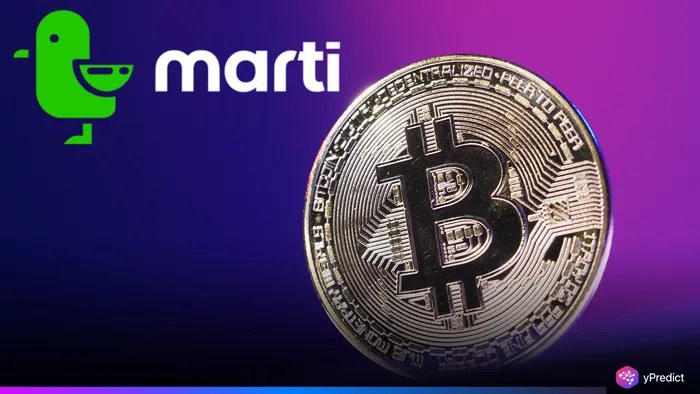
Marti, the Turkish transportation and ride-hailing company, is making a statement by investing 20% of its cash reserves into Bitcoin. This is one of the clearest signals to date that digital assets are increasingly entering the realm of corporate finance. In a country with a history of economic instability, this represents a significant shift in corporate thinking about money.
Turkey is facing high levels of inflation, a weak lira, and an increased amount of uncertainty. Businesses will look to increasingly hedge against risk in local currency. Against this backdrop, Bitcoin is not just an investment, it is also an insurance policy. Marti’s announcement is indicative of not only its financial resilience, but its long-term positioning within an increasingly digital economy.
Why Marti Is Moving Reserves Into Bitcoin
Marti’s leadership sees Bitcoin as more than a trend. They view it as a stable store of value in uncertain times. With Turkey’s inflation rate rising sharply and the lira losing ground, holding large cash reserves in fiat currency now feels too risky. Instead of watching their reserves lose value, they’ve chosen a new approach.
Their Bitcoin treasury strategy doesn’t replace traditional financial tools, it complements them. Bitcoin allows companies to diversify their cash holdings while gaining exposure to a global, non-sovereign asset. For Marti, the shift aligns with a growing list of global firms taking similar steps in response to economic pressures.
What This Means for Turkish Businesses and Crypto Growth
This decision may encourage other companies in Turkey to also consider similar options. Marti is the first significant Turkish company to publicly do this, and that is important. Many business leaders are quietly concerned about inflation, and they have not acted yet. This bold decision may cause other companies to act.
If more companies follow suit, there will be a greater demand for crypto infrastructure in Turkey. This obviously includes regulation, banking access, and custodial services. A larger Bitcoin investment market in Turkey may also incentivize policymakers to determine their stance on digital assets, which would be good for the wider economy.
Marti Joins a Growing Global Trend in Corporate Crypto
Marti’s decision is not an isolated one. In recent years, companies from the U.S., Latin America, and even Asia have explored using Bitcoin in their treasury mix. From MicroStrategy to Square, the strategy has started gaining ground. Marti becomes one of the first to do so in an emerging economy.
This marks another step in the global shift toward corporate crypto adoption. Companies in volatile markets increasingly see crypto not as speculation but as stability. While developed nations debate regulation, businesses in inflation-prone countries are acting out of necessity.
Balancing Risk with Long-Term Vision
Critics of Bitcoin often point to its price swings and regulatory uncertainty. But Marti is not betting everything. The company has allocated just 20% of its reserves, which limits downside exposure. The remaining 80% still sits in more traditional instruments.
This isn’t about chasing short-term gains. It’s a long-term hedge against inflation and systemic financial risk. By diversifying early, Marti positions itself ahead of the curve. They’re not trying to time the market, they’re building financial resilience in a fragile environment.






